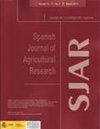Animal welfare of embryos and newly hatched chicks: A review
IF 0.8
4区 农林科学
Q3 AGRICULTURE, MULTIDISCIPLINARY
引用次数: 0
Abstract
The welfare of farm animals is a hotly debated issue today. There are few technical materials available focused on hatcheries that address and incorporate practices adopting the welfare level required by civil society. However, about 33% of the production period of a broiler chicken occurs on the hatchery. Recent studies have shown that day-old chick production has points that need to be improved. Technical standards indicate that the process of welfare should begin during egg storage such that the best conditions are provided for embryos prior to incubation. Storage until 28 days at temperatures above 12ºC can kill embryos, while exposure of eggs to 30 ºC until 14 days causes a negative impact under the hatchability. The available results regarding in ovo nutrition show that it should be considered for benefit neonate quality since inoculation of substances such vitamin E (60.4 IU) promote better incubation results. Feeding immediately after hatching is a management for welfare because animals feed-fed soon after hatch perform better up to 35 d. The most criticized point in hatcheries is the slaughter of neonates, for which some strategies are being investigated, including the use of dual-purpose aptitude strains, in ovo sexing by different methodologies, sex inversion and hormonal-based sexing. It is noted that procedures involving bird incubation require greater attention to welfare. Therefore, it is necessary to align theoretical knowledge with practical applications so that the demands of society, as well as those of industry, are met.胚胎和孵化小鸡的动物福利:综述
农场动物的福利是当今一个激烈争论的问题。很少有专门针对孵化场的技术材料涉及并纳入采用民间社会要求的福利水平的做法。然而,肉鸡大约33%的生产期发生在孵化场。最近的研究表明,一日龄雏鸡的生产有一些需要改进的地方。技术标准表明,福利过程应在卵子储存期间开始,以便在孵化前为胚胎提供最佳条件。在12ºC以上的温度下储存28天可能会杀死胚胎,而将卵子暴露在30ºC直到14天会对孵化率产生负面影响。关于卵内营养的现有结果表明,应该考虑对新生儿质量有利,因为接种维生素E(60.4IU)等物质可以促进更好的培养结果。孵化后立即喂食是一种福利管理,因为孵化后不久喂食的动物在35天内表现更好。孵化场中最受批评的一点是屠宰新生儿,为此正在研究一些策略,包括使用两用能力菌株,通过不同的方法进行卵性别鉴定,性别反转和基于激素的性别鉴定。值得注意的是,涉及鸟类孵化的程序需要更多地关注福利。因此,有必要将理论知识与实际应用相结合,以满足社会和工业的需求。
本文章由计算机程序翻译,如有差异,请以英文原文为准。
求助全文
约1分钟内获得全文
求助全文
来源期刊

Spanish Journal of Agricultural Research
农林科学-农业综合
CiteScore
2.00
自引率
0.00%
发文量
60
审稿时长
6 months
期刊介绍:
The Spanish Journal of Agricultural Research (SJAR) is a quarterly international journal that accepts research articles, reviews and short communications of content related to agriculture. Research articles and short communications must report original work not previously published in any language and not under consideration for publication elsewhere.
The main aim of SJAR is to publish papers that report research findings on the following topics: agricultural economics; agricultural engineering; agricultural environment and ecology; animal breeding, genetics and reproduction; animal health and welfare; animal production; plant breeding, genetics and genetic resources; plant physiology; plant production (field and horticultural crops); plant protection; soil science; and water management.
 求助内容:
求助内容: 应助结果提醒方式:
应助结果提醒方式:


